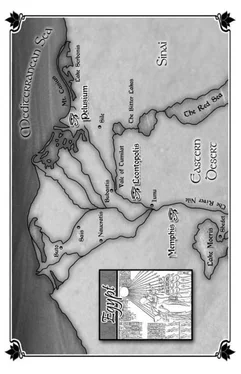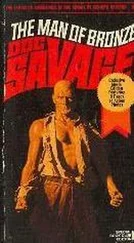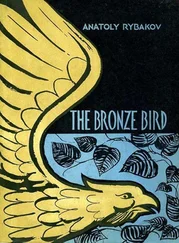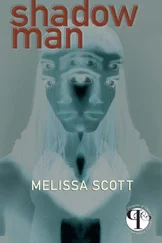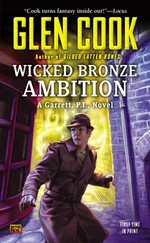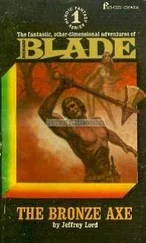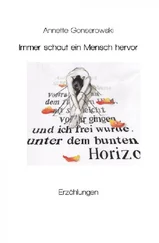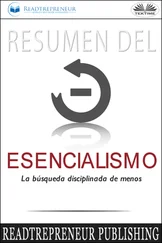Scott Oden - Men of Bronze
Здесь есть возможность читать онлайн «Scott Oden - Men of Bronze» весь текст электронной книги совершенно бесплатно (целиком полную версию без сокращений). В некоторых случаях можно слушать аудио, скачать через торрент в формате fb2 и присутствует краткое содержание. Жанр: Исторические приключения, на английском языке. Описание произведения, (предисловие) а так же отзывы посетителей доступны на портале библиотеки ЛибКат.
- Название:Men of Bronze
- Автор:
- Жанр:
- Год:неизвестен
- ISBN:нет данных
- Рейтинг книги:3 / 5. Голосов: 1
-
Избранное:Добавить в избранное
- Отзывы:
-
Ваша оценка:
- 60
- 1
- 2
- 3
- 4
- 5
Men of Bronze: краткое содержание, описание и аннотация
Предлагаем к чтению аннотацию, описание, краткое содержание или предисловие (зависит от того, что написал сам автор книги «Men of Bronze»). Если вы не нашли необходимую информацию о книге — напишите в комментариях, мы постараемся отыскать её.
Men of Bronze — читать онлайн бесплатно полную книгу (весь текст) целиком
Ниже представлен текст книги, разбитый по страницам. Система сохранения места последней прочитанной страницы, позволяет с удобством читать онлайн бесплатно книгу «Men of Bronze», без необходимости каждый раз заново искать на чём Вы остановились. Поставьте закладку, и сможете в любой момент перейти на страницу, на которой закончили чтение.
Интервал:
Закладка:
"There. Get me as close as you can."
His destination was the Nilometer, an angled stone staircase cut into the high bank of the Nile. Steps chiseled with hieroglyphs measured the level of water from season to season. Life in Egypt, all life, depended upon the rhythms of the river, on the annual inundation of the Nile. Low floods were harbingers of famine; high floods promised ruin. A perfect inundation meant granaries full of emmer, cisterns full of beer, and a year of prosperity for all.
The boy inched the nose of the skiff into the Nilometer until the hull scraped stone. Barca clambered out of the boat and gripped the prow. Cool water lapped at his ankles. He paused before handing the lad his knife. "Forget you saw me," he said. The boy nodded, flashing a gap-toothed smile. He accepted his prize as if it were given for valor. Barca gave the boat a shove, watching it spiral out into the river. Satisfied the boy would find his way home, the Phoenician turned and ascended the algae-slick stairs of the Nilometer.
The mouth of the Nilometer lay inside the walled enclosure of the temple of Osiris, on the southern edge of Memphis. Through a dark veil of palm trees, Barca saw the glimmer of white stone marking the ceremonial entrance of the temple; to his right lay a scattering of chapels and outbuildings. Though the sanctuary was dedicated to Osiris, the temple grounds housed countless other gods, along with shrines to the deified pharaohs and tombs of high-ranking priests.
The folk of Egypt, Barca reckoned, were religious to the point of excess. Ritual and magic permeated their lives. Mothers taught their daughters prayers to insure bread would not burn, milk would not spoil, and children would sleep through the night. Fathers passed along to their sons the words of power that would make crops grow, arrows fly true, and crocodiles look the other way. The wealthy knew dozens of incantations that would keep their gold safe; the poor knew just as many to make that gold safe to the touch. This unquestioned faith in the unseen, in the divinity of Pharaoh, and in the gods, was the force that bound Egypt into a unified whole.
Barca slipped out of the Nilometer and followed the circuit of the wall. He came to a small side gate that opened on one of the city's infamous winding alleys and stopped, listening. No priests stirred about at this late hour; no suppliants came to beg Lord Osiris for succor in the next world. The only sounds came from the wind rustling through the trees and the commotion of the nearby Foreign Quarter. The Phoenician drew the wooden bolt and slipped out the gate.
He felt a momentary flash of claustrophobia. Accustomed to the wide-open sky of the Eastern Desert, Barca felt surrounded by those ancient mud brick walls. A thin strip of starlight overhead mocked him. Clenching his teeth, stifling the fear that somehow the buildings would collapse on him, Barca set off at a trot.
He headed west, crossed a broad lane lined with humanheaded sphinxes, and plunged into the tangled warren of the Foreign Quarter. Barca's informant lived on the southern edge of this turbulent district, on the Street of the Chaldeans, in the shadow of a solitary obelisk known as the Spear. At least, Barca hoped Matthias ben lesu still dwelt there. Five years had passed since his last visit; five years could encompass a lifetime in a city such as Memphis, a city in a state of constant flux. Barca chided himself for not maintaining contact with the aging Judaean. If he had, perhaps he could have squashed this potential crisis months ago.
Barca ghosted down the alley, past doors and windows, past mud brick crevices and jagged chasms that yawned like the gates of Hades. The heat, coupled with the stench rising from a thin runnel of sewage, made his lungs ache. Sweat drenched his tunic; stinking muck caked his sandaled feet. It was like moving through the bowels of a stone leviathan. After an hour, he knew he must be closing in on his destination.
The alley turned sharply and widened, becoming a small irregular square. To his right, gleaming like an alabaster spike above the skyline, Barca caught sight of the Spear. The obelisk belonged to an ancient temple facade, its stone cannibalized during one of the interregnums of pharaonic power. Now it stood isolated, a reminder of darker times. Barca glanced around the square. He wasn't alone. Shapes huddled in the corners; he heard muttered curses, smelled the raw stench of human waste. From the shadows at his feet, a filth-encrusted hand plucked at the Phoenician's tunic.
"Mercy," a voice wheezed in Egyptian, densely accented. "Mercy for an old soldier?"
Barca brushed the hand aside. A few other pitiful forms leaned out and importuned him, begging for coin. Like the mud-dwellers, the beggars of Memphis were a caste unto themselves, an indigenous population who slipped through the cracks of Egypt's rigid society. They were the insane, the infirm, the solitary, cast aside and forgotten as their usefulness waned. This could be my fate, Barca thought, feeling a glacial abscess in the pit of his stomach. He glanced down at the beggar. "A soldier, you say?"
"Aye," the beggar said, crawling to his knees. A cloud of flies rose from his filthy nest. "Much younger, I was. Carried spear and shield in the company of Lord Huy of Bubastis." The beggar exhaled, a wheezing chuckle that reeked of rotted onion.
"I'm a soldier, as well, and I need to know if a man still lives nearby. A Judaean …"
"The astrologer! " The beggar pawed at Barca's belt. His fingers brushed the Phoenician's sheathed scimitar and jerked away as if burned. "You're Phoenician … yes, he told us to be expecting you. He told us you'd be seeking the Jew. "
"Who? Who told you?"
"The man with the copper bangles."
One of the other beggars hissed. "Not `pose to tell `im, fool! "
"We're soldiers, he and I! Brothers! Not like you other dogs! You'd sell your mothers for a jug of beer! "
Barca crouched. "The man with the bangles, was he Greek?"
The beggar shook his head. "Egyptian. Tall as a palm trunk. Wanted us to tell his mate, over by the Spear, if we saw you. These other curs might. Not me. Too tired to fight. Too tired. . " The beggar's head drooped. None of the others moved, either; even the one who hissed a warning curled up in an old shawl and fell asleep muttering to himself.
"My thanks, brothers," Barca whispered, rising. Someone had spotted him, but how? How? With a savage growl, Barca moved to the alley mouth, flattened his body against the wall, and peered out into the street.
The Street of the Chaldeans was not a well-planned thoroughfare. Some buildings thrust out beyond their neighbors or sat at odd angles, as if the architect suffered from a malady that made him incapable of straight lines. At one end of the street, a grove of palm trees rose around the base of the Spear. At the other, a small wine shop still did a brisk custom at this late hour, catering to foreign merchants and caravan guards. The house of Matthias ben lesu lay halfway down the street, toward the obelisk, its dilapidated facade recessed into shadow.
Movement under the palm trees caught Barca's eye. A man waited there, just as the beggar had said. The figure stood, stretched, then crouched down again, barely visible in the darkness. His attitude spoke of wariness, patience, as if he were waiting for something. Or someone. Barca's eyes narrowed. No matter. He knew another way in.
Matthias ben lesu wrote by the uneven light of an oil lamp. Failing eyes forced his body into a question mark over the sheet of papyrus, his back bowed like the Hebrew slaves of legend who toiled beneath the vicious eyes of Pharaoh. Matthias paused, scraping the tip of his reed pen across a moistened cake of ink, then continued:
Memphis is a cruel city, cousin. Cruel and unforgiving. In Babylon they respected my art; it was sought after by prince and pauper, alike. Here, in Egypt, theyrevile me as a charlatan. Iha ye no hope. That is the crux of this letter, dear cousin. I wish to return, to have my banishment lifted so at the very leastI can die with dignity
Читать дальшеИнтервал:
Закладка:
Похожие книги на «Men of Bronze»
Представляем Вашему вниманию похожие книги на «Men of Bronze» списком для выбора. Мы отобрали схожую по названию и смыслу литературу в надежде предоставить читателям больше вариантов отыскать новые, интересные, ещё непрочитанные произведения.
Обсуждение, отзывы о книге «Men of Bronze» и просто собственные мнения читателей. Оставьте ваши комментарии, напишите, что Вы думаете о произведении, его смысле или главных героях. Укажите что конкретно понравилось, а что нет, и почему Вы так считаете.
